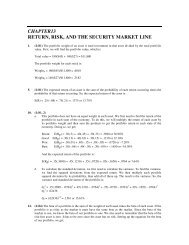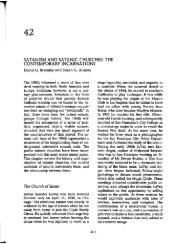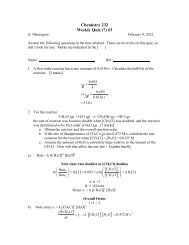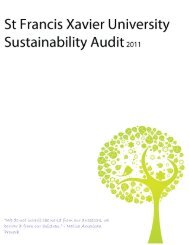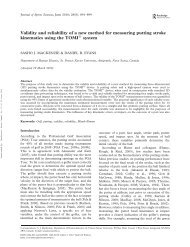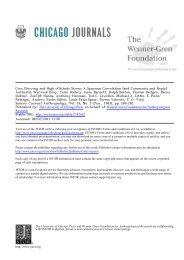ÉTIENNE GILSON AND THE ACTUS ESSENDI
ÉTIENNE GILSON AND THE ACTUS ESSENDI
ÉTIENNE GILSON AND THE ACTUS ESSENDI
Create successful ePaper yourself
Turn your PDF publications into a flip-book with our unique Google optimized e-Paper software.
Dewan: Gilson and the actus essendi<br />
knowledge. 61 Actual existence is given in sense intuition. 62 From the objects of sense<br />
intuition the intellect abstracts, among other notions, those of being (ens, Seiendes,<br />
étant), thing (res, Ding, chose), matter and form conceived as two distinct constituents<br />
of corporal [sic, read “corporeal”] substance. Moreover, conceiving apart that which<br />
the thing is and the fact that it actually is, we can form the two abstract notions of<br />
essence (question, quid sit) and of existence (question, an sit), but this is the point<br />
where most of the philosophers will stop while Thomas Aquinas insists on going on.<br />
(130)<br />
In view of what one reads in many texts of Thomas, one would have every<br />
right to assume that with the “existence” related to the question “an sit,” one had<br />
come to Thomas’s esse. 63 Indeed, once one has distinguished the two notions<br />
referred to by Gilson, of essence and existence, one is in an excellent position to<br />
ask whether the realities to which they refer are identical or not. However Gilson<br />
will have none of that. He continues:<br />
... Existence may mean either a state or an act. In the first sense, it means the state in<br />
which a thing is posited by the efficacy of an efficient or of a creative cause, and this<br />
is the meaning the word receives in practically all the Christian theologies outside<br />
Thomism, particularly those of Augustine, Boethius, Anselm, Scotus, and Suarez. 64<br />
In a second sense, existence (esse, to be) points out the interior act, included in the<br />
composition of substance, in virtue of which the essence is a “being,” and this is the<br />
properly Thomistic meaning of the word. (130-131)<br />
61 This seems to me a sound description of the understanding of the distinction; it accords<br />
with the way Thomas expresses the matter in ST 1.12.4.ad 3, where even the angel is said<br />
to “abstract” esse from its concrete subject, when it discerns that it itself (the angel) is other<br />
than its own esse.<br />
62 Notice that this is not esse as a per accidens sensible. This sense knowledge to which<br />
Gilson refers would be of individual esse as individual; cf. ST 1.75.6 (445b31-34):<br />
... Sense does not know esse save as here and now, but the intellect apprehends esse<br />
absolutely, and as regards all time.<br />
The object which is a per accidens sensible for the intellect, e.g. life, is a universal.<br />
Sentencia libri De anima 2.13 (Leonine ed., lines 182-190). Cf. Aristotle, De anima 2.6<br />
(418a7-26).<br />
63 Cf. e.g. Expositio libri POSTERIORUM 2.6 (ed. Leonine, t. 1*2, Rome\Paris, 1989:<br />
Commissio Leonina\Vrin, lines 35-50; ed. Spiazzi, #463); also 2.7 (ed. Leonine, lines 27-<br />
41; ed. Spiazzi, #471).<br />
Fr. R.-A. Gauthier, in his Introduction to the Leonine edition (pp. 76*-77*), locates and<br />
dates this part of the work as at Naples at the end of 1272, i.e. Thomas at his most mature;<br />
he is using (in this latter part of the work) the Moerbeke translation. - However, the relation<br />
between Thomas’s doctrine of the act of being and the question “whether it is” is a subtle<br />
one. At ST 1.3.4.ad 2, Thomas distinguishes between the act of being and the “being”<br />
which signifies the true; so also in ST 1.48.2.ad 2. On the other hand, Quodl. 2.2.1 [3],<br />
which is generally placed later in Thomas’s career, takes together “being” [esse] as<br />
signifying truth and as signifying entity, and relates both to the question: “whether it is.”<br />
64 As we saw, he would likely add Cajetan to this list.<br />
91



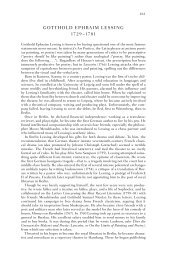
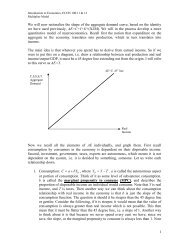
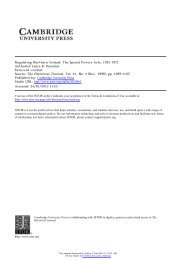
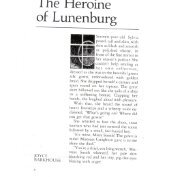
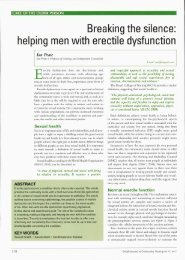
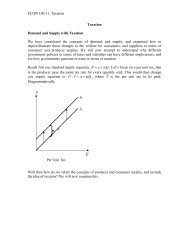
![The Rink - Cyril Dabydeen[1].pdf](https://img.yumpu.com/21946808/1/155x260/the-rink-cyril-dabydeen1pdf.jpg?quality=85)

